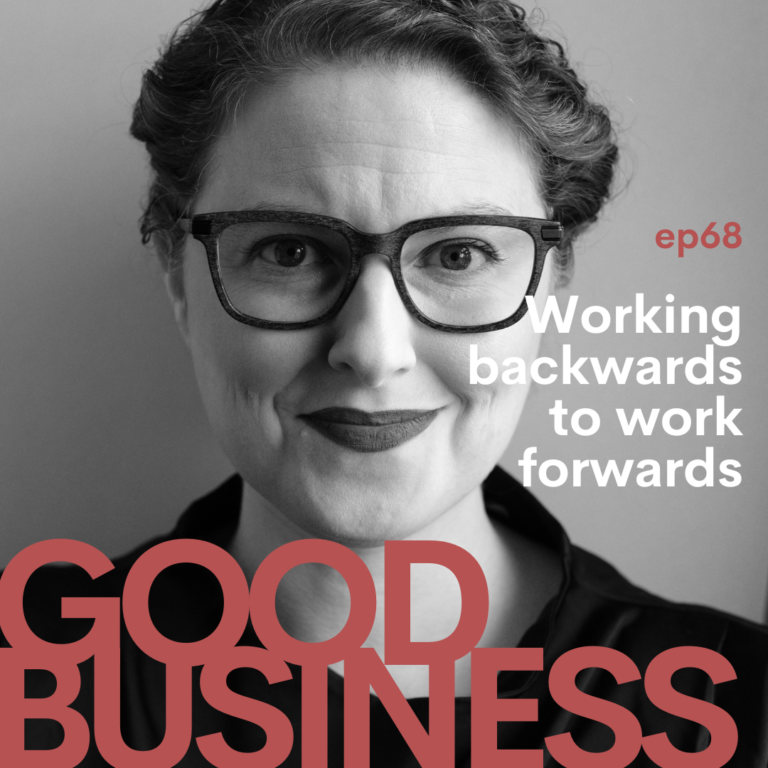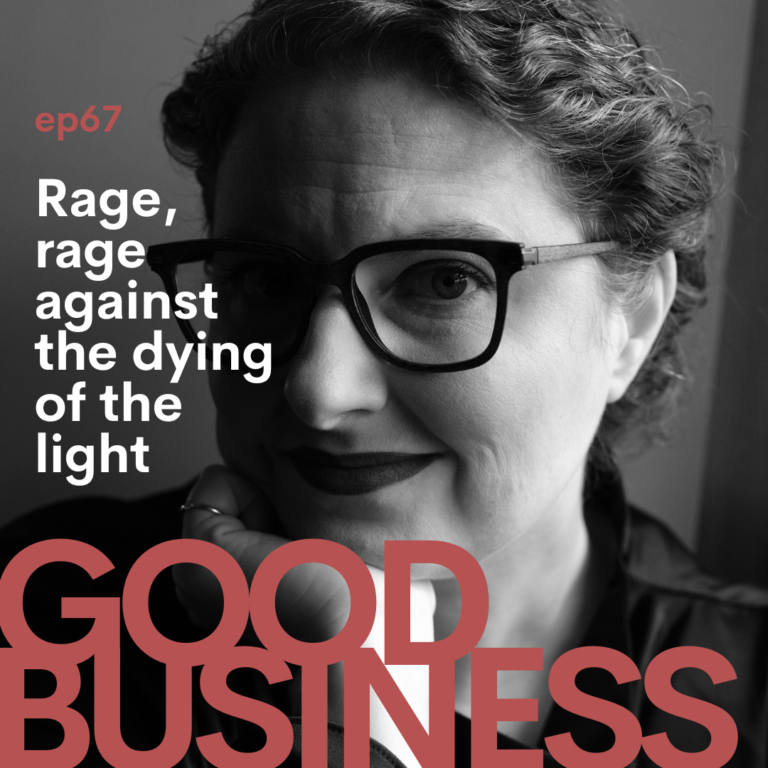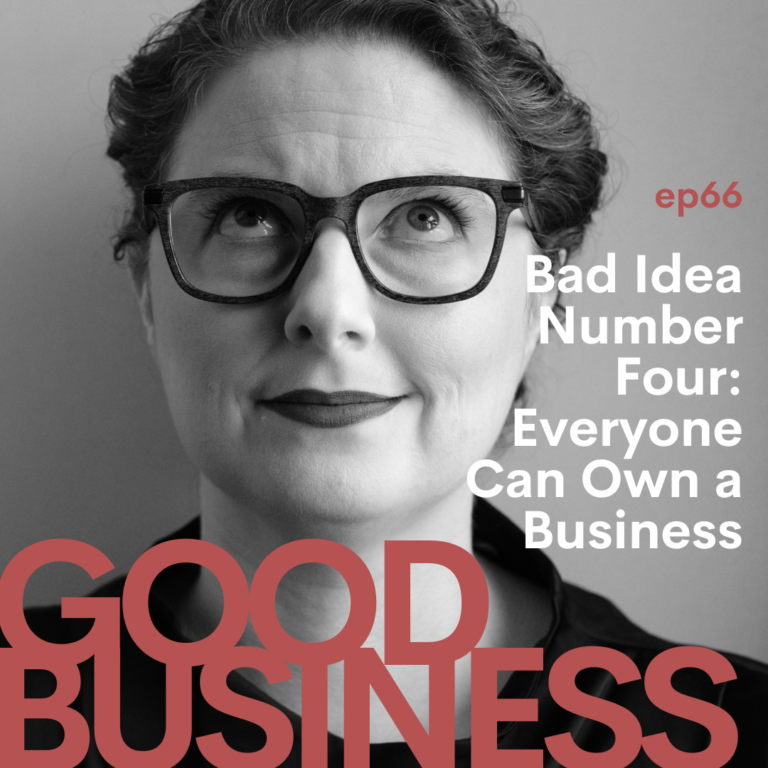In this episode of the Good Business Podcast, we dive into the critical 15 minutes that can make or break a client relationship. Want to know why these first few minutes are so crucial, what should be included, and how to adjust if any steps are missed? Through clear communication and setting mutual expectations, you can already begin building trust and cultivating a collaborative partnership with clients. By getting it right from the start, both parties can ensure a successful and fulfilling long-term relationship. Tune in to this episode to learn how to navigate the initial client interaction with finesse and set yourself up for success.
[NOTE: The transcript below was generated with the help of AI. I do not advocate for the use of AI in copywriting in general, but see it as a useful tool for improving efficient editing of my own creative content. None of the actual content of the episode or the transcript was AI-generated. I just let the computer help me clean up the text so it can be more easily understood and consumed. ~i.]
Welcome back to the Good Business Podcast! I’m your host, Illana Burk, and I’m so delighted to have you here with me today. Today, we’re talking about the 15 most important minutes of a client relationship. And I know you’re dying to know which 15 minutes we’re talking about, and I’m not going to hold you in suspense. We are talking about the first 15 minutes of your very first call or meeting with any new client.
Why are these 15 minutes so critical?
- It’s your very first opportunity to set the tone, set boundaries, and set mutual expectations.
- Getting it right means that your client’s anxieties are waylaid, which are usually higher than you might realize.
- You can set mutual expectations on both sides and build trust very quickly by showing them that you “have them.”
- Showing up and asking a client to set their expectations is different from showing up ready to create a clear partnership. A clear partnership is important for longer-term client relationships.
- Failing to set expectations up front leads to a transactional relationship, where the client is the customer and you are the purveyor. This can lead to problems down the road.
- Leading effectively right from the start validates their choice and is the first step towards keeping the promises you made.
How to make the most of the first 15 minutes:
- Keep your greetings brief.
- Take charge as quickly as possible.
- Tell them exactly how the call is going to go.
- Create an outline for yourself with bullet points including:
- What you know about the person
- Any pain points or concerns
- Red flags they might have mentioned
- Boundaries
- Policies
- Relevant pet peeves
- Common questions
- How to handle bumps in the road
- Boundaries: This is important to do with confidence and a steady voice. It sets the tone for the relationship.
- Policies: Briefly reiterate anything important from your contract.
- Relevant pet peeves: Share yours and ask about theirs. This can help you avoid pitfalls and meet their needs.
- Common questions: Address these to waylay final anxieties.
- Open the floor to how you’ll handle bumps in the road: Be clear about your process and expectations.
- Leave room for correction: Acknowledge that you might forget something and give yourself time to address it at the end.
The goal is to frame out the edges of your working relationship so the person is left with a clear sense of equity and trust. The most important thing to leave them with is that if anything goes wrong, you’ve got them and you’ll confront issues head-on.
I hope this helps you make the most of the first 15 minutes of your client relationships!
More Episodes
GB68: Working backwards to work forwards
Welcome back to the Good Business Podcast. I'm your host, Illana Burk. Today, we're diving into one of my favorite productivity tools, which, amusingly enough, isn't really a productivity tool at all. As a business coach,...
GB67: Rage, rage against the dying of the light
Welcome back to the Good Business Podcast. Today, we're talking about visibility. It's a big theme for me at the moment, as this week marks the start of "Go for the Know," my very new, very exciting, totally free program for...
Bad Idea Number Four: Everyone Can Own a Business | GB66
In this episode, I debunk the myth that everyone should own a business. Entrepreneurship requires a high tolerance for risk and can deeply affect personal relationships. Success in business isn't just about skills, but about...
Why we need to put our best stuff out for free | GB65
In this episode, we talk about why it is the right thing to do to give out your work, your very best work, generously, and everywhere you can, why special and generous content wins, the pitfalls of marketing funnels, and how...
How to give feedback | GB64
In this episode, we’re tackling the often-dreaded task of giving feedback. We all know how important feedback is for growth, but delivering it in a constructive and respectful way can be a challenge.
Join us as we explore the art of giving feedback without being a jerk. We’ll discuss why feelings matter in business, the four key steps to giving effective feedback, and how to approach difficult feedback with empathy and honesty.
How to ask for and take feedback | GB63
Navigating feedback can be daunting. In this episode, we dive into the skills of asking for and receiving feedback with intention and grace. Learn the art of crafting your asks to elicit constructive insights and how to...






